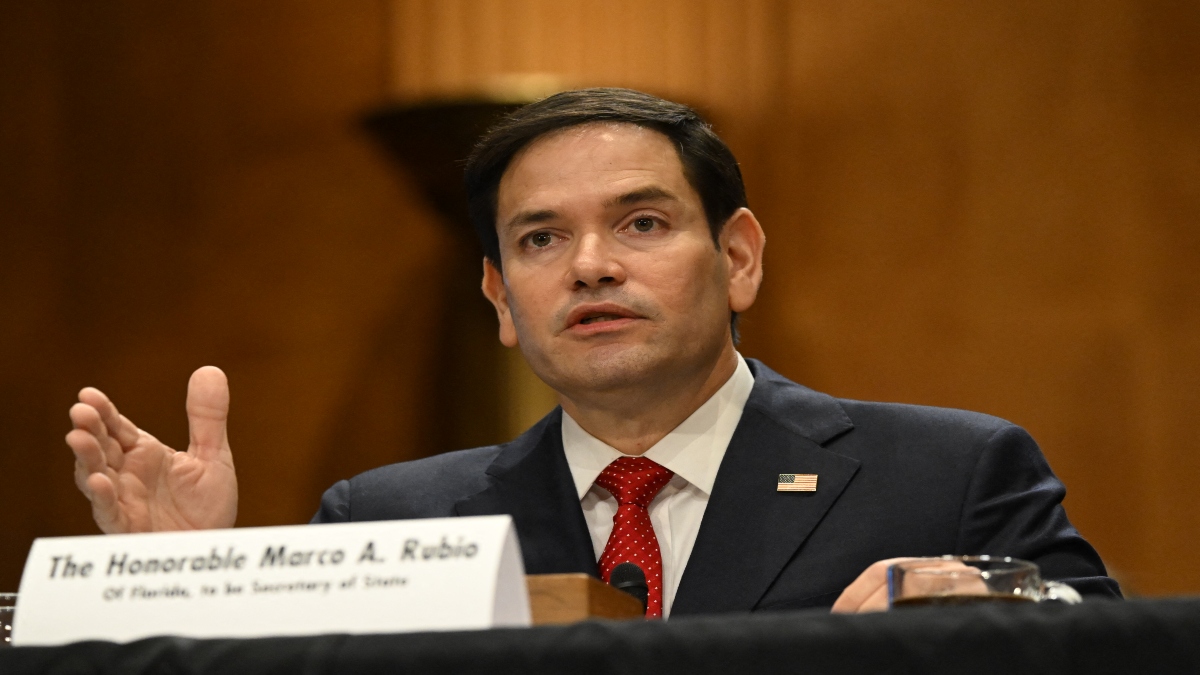Donald Trump’s pick for secretary of state Marco Rubio on Wednesday said that “dangerous” China has manipulated its way to superpower status and pledged to ramp up support to deter an invasion of Taiwan.
Rubio presented these views before his fellow senators during a confirmation hearing that took place just as Israel and Hamas agreed to a ceasefire in their 15-month war, a long-sought goal of President Joe Biden’s outgoing administration..
He described China as “the most potent and dangerous near-peer adversary this nation has ever faced”, warning of significant consequences if the US fails to respond effectively.
“If we stay on the road we’re on right now, in less than 10 years virtually everything that matters to us in life will depend on whether China will allow us to have it or not - everything from the blood pressure medicine we take to what movies we get to watch,” AFP quoted Rubio, who is expected to secure confirmation easily, as saying.
He vowed to ramp up defences of Taiwan, the self-governing democratic island claimed by Beijing, to prevent a “cataclysmic military intervention.”
“We need to wrap our head around the fact that unless something dramatic changes, like an equilibrium (between China and Taiwan), where they conclude that the costs of intervening in Taiwan are too high, we’re going to have to deal with this before the end of this decade,” Rubio was quoted as saying.
No ‘primary’ role in Nato?
During his campaign, Trump questioned Taiwan’s defence spending, arguing it doesn’t contribute enough for its own defence, echoing similar criticisms of Nato allies.
Rubio distanced himself from suggestions of withdrawing from Nato but emphasised that the US needs to reconsider whether to maintain “the primary defence role” in the alliance or serve as a “backstop to aggression,” urging Europeans to take on more responsibility.
Impact Shorts
More ShortsA strong supporter of Ukraine following Russia’s invasion nearly three years ago, Rubio has aligned with Trump in advocating for “bold diplomacy” that would necessitate concessions from both sides.
“This war has to end, and I think it should be the official policy of the United States that we want to see it end,” Rubio was quoted as saying, a shift from Biden’s approach of supporting Ukraine through victory.
Rubio also backed the diplomacy that reached the Gaza ceasefire but made clear that he will staunchly back Israel, after Biden’s occasional criticism of the toll to civilians.
“How can any nation-state on the planet coexist side by side with a group of savages like Hamas?” Rubio said.
Denouncing ’liberal world order’
Rubio rejected a key tenet of Biden’s foreign policy - prioritising a rules-based, US-led “liberal world order” - in favor of Trump’s belief in “America First.”
“The postwar global order is not just obsolete; it is now a weapon being used against us,” Rubio said.
“We welcomed the Chinese Communist Party into this global order. And they took advantage of all its benefits. But they ignored all its obligations and responsibilities,” Rubio said.
“Instead, they have lied, cheated, hacked and stolen their way to global superpower status, at our expense.”
Rubio, the son of working-class Cuban immigrants, would become the first Hispanic and first fluent Spanish speaker to be the top US diplomat.
Well-liked by his colleagues, Rubio is one of the least contentious of Trump’s array of nominees. Democratic Senator Cory Booker addressed him as “Marco” and called him a “thought leader” before complimenting his sports knowledge.
A traditional Republican hawk, Rubio clashed bitterly with Trump - who mocked him as “Little Marco” - in the 2016 presidential nomination race, but Rubio since come into the fold.
Other nominees in Senate hearings Wednesday included Pam Bondi, tapped for the top law enforcement job of attorney general.
Trump named her after his first choice, Matt Gaetz, withdrew following allegations that he paid for sex, including with an underage girl, at drug-fueled parties.
Bondi received a polite reception from senators.
She said she was open to supporting pardons on a “case-by-case basis” for some convicted over the 2021 riot at the US Capitol by a pro-Trump mob but said she would “condemn any violence” against law enforcement.


)

)
)
)
)
)
)
)
)



